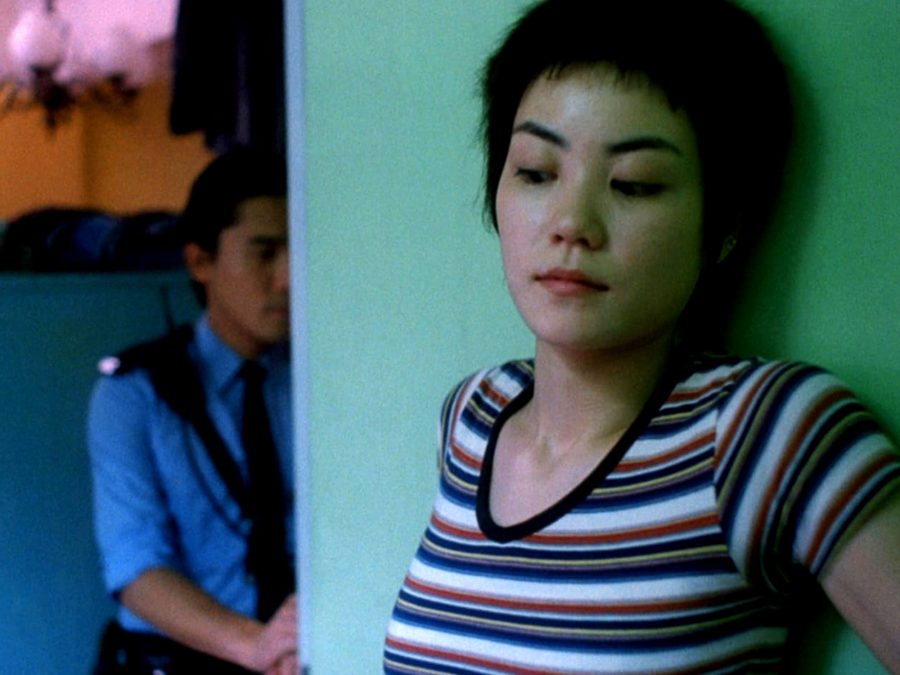

Seiji comes to represent more than a crush: she sees in him a reflection of herself, albeit a more accomplished version, who will slip away by virtue of his talent. Although he later insists that he liked her satire, Shizuku is spurred on to improve her translation. Shizuku becomes embarrassed and angry when aspiring artisan Seiji Amasawa (Issei Takahashi), her classmate and eventual love interest, finds her lyrics and genially mocks them. One of her early drafts approaches the task ironically with a parodic take on the urbanisation of her city, titled “Concrete Roads”. Denver’s narrator wistfully refers to specific locations, making it at once personal and emotive: “Almost heaven, West Virginia / Blue Ridge Mountains, Shenandoah River.” Translation represents a major challenge: to do the mood of the song justice, she must adapt the lyrics to Tokyo, supplanting the voice of the original narrator with her own gloss. Shizuku’s first creative effort is a Japanese translation of John Denver’s country song “Take Me Home, Country Roads”. Testifying to the domestic relatability of the film, Shizuku’s desk has become widely recognised thanks to ChilledCow’s “lofi hip hop radio” YouTube Channel. In another, Shizuku’s mother rushes back home to collect her purse while Shizuku brushes her teeth. In an early scene, Shizuku is directed to the kitchen to clear away breakfast and put on the laundry. The geography of Shizuku’s small family apartment is particularly distinct, where tiny, narratively “unnecessary” plot details allow us to linger a little longer. We follow Shizuku’s school run, her walks home with her best friend Yūko (Maiko Kayama), her pursuit of a mysterious cat on a train through suburban roads, and her perusing books in the city library. The city she lives in is vividly realised in the film, a character in itself.

Negotiating the turbulent obstacles of crushes, friendships, and her relationship with her parents and her sister, Shizuku learns to utilise her unpolished writing skill and vivid imagination to produce a short story. Its protagonist, the good-natured and ambitious fourteen-year-old schoolgirl Shizuku Tsukishima (Yōko Honna), dreams of becoming a writer as she spends her days obsessively checking out library books and growing up in Tokyo. Whisper of the Heart comprises, along with Only Yesterday, Ocean Waves, and From Up on Poppy Hill, the small yet profound coming-of-age realism subgenre in the Studio Ghibli canon. Whisper of the Heart and Chungking Express – released just a year apart – might seem totally dissimilar, but share a distinctive commonality in their central female characters’ respective attachments to a particular diegetic song, used to tell us about how they relate to their wider urban environment. Neither can we divorce the images of the callous massacre of a Vietnamese village in Apocalypse Now from the fascistic connotations of Wagner’s accompanying “Ride of the Valkyries”. We cannot appreciate the malaise of colonial Calcutta in India Song without the desultory eponymous melody recurring throughout. A particularly interesting – and possibly under-appreciated – function of music is its depiction of both place and how characters feel about a place. One of the first things that come to mind when we think of a film we love might be its stirring orchestral score, its zany soundtrack, or evocative sonic symbols. The moment where it drops in is perfect: there is something so ebullient about this song – even if you don’t understand Wong’s lyrics in Chinese, the feel and spirit just nails down the emotion invoked at the film’s end.Music has always played a critical role in film, serving as an emotional and aesthetic heartbeat pulsing alongside and supporting its narrative core. In the second vignette, Tony Leung Chiu Wai and Faye Wong’s lives intersect and at the very end of the film, Wong’s “Dream Person,” a cover of the Cranberries’ big hit, “Dreams,” comes on. Sharon began to singing the first line over and over, almost unconsciously. This song is so damn infectious: after I played it once, my g.f. You won’t be sorry (though you may never want to eat a can of pineapples again).įor those who haven’t seen it, the film is split into two distinct vignettes, the first involving Takeshi Kaneshiro and Brigette Lin…and at least two, three times, there is a bar scene where Dennis Brown’s “Things in Life” is playing on the jukebox.

If you’ve never seen it – dudes and dudettes: walk thee to a video store (or Netflix) and rent that shit. I was tempted to combine today’s post with music from In the Mood For Love but I’m just going to stick to this pair from his Chungking Express. Also available on Chungking Express Soundtrack (?, 2003)įor as much praise as Hong Kong filmmaker Wong Kar-Wai gets for his visual imagination, WKW also showcases a superb taste in music. Also available on Money In My Pocket.įrom Random Thinking (?, 1994).


 0 kommentar(er)
0 kommentar(er)
